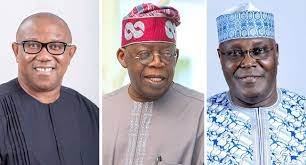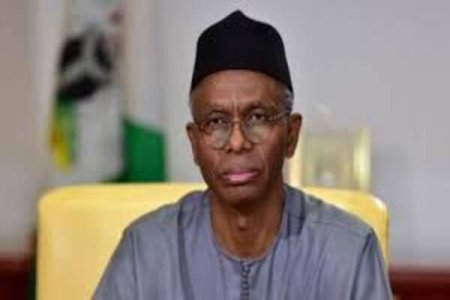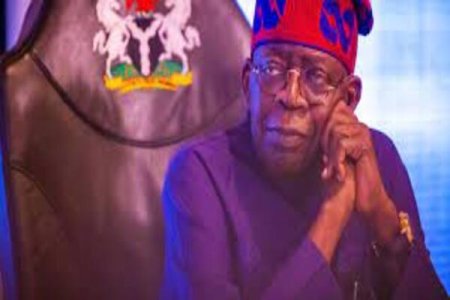
In a significant legal battle that has captured the nation's attention, Nigeria's Supreme Court has embarked on a momentous hearing of appeals filed by the People's Democratic Party (PDP), Labour Party (LP), and Allied Peoples Movement (APM). The central issue at stake is the potential nullification of President Bola Tinubu's election victory, which has far-reaching implications for the country's political landscape.
Presided over by Chief Justice Inyang Okoro, a panel of seven justices has been convened to deliberate on these appeals. This panel includes notable jurists such as Justice Helen Ogunwumiju, Justice Ibrahim Saulawa, Justice Adamu Jauro, Justice Tijani Abubakar, Justice Emmanuel Agim, and Justice Lawal Garba.
The hearing has drawn a host of prominent political figures, including APC National Chairman Abdullahi Ganduje, LP Chairman Julius Abure, Chief of Staff to the President Femi Gbajabiamila, National Security Adviser Nuhu Ribadu, and other party stalwarts.At the heart of the matter is the motion submitted by PDP's presidential candidate, Atiku Abubakar, who is seeking to introduce fresh evidence suggesting that President Tinubu may have submitted a forged certificate to the Independent National Electoral Commission (INEC).
The Supreme Court, in a hearing notice, has set the proceedings for 9 am, allowing both Atiku's and President Tinubu's legal teams to present arguments regarding the court's jurisdiction to grant this request.
Additionally, lawyers representing the All Progressives Congress (APC) and INEC, who are joint respondents in the motion, will provide their legal perspectives on whether such a request aligns with the nation's Constitution and the Electoral Act 2022.
Atiku aims to introduce academic records obtained from Chicago State University, a development that transpired under the orders of Judge Nancy Maldonado of the District Court of Illinois, Eastern Division, United States of America.
The ongoing Supreme Court hearing is of paramount national importance, as it has the potential to shape the nation's political future and democratic processes. All eyes are now on the Supreme Court's verdict, which could substantially transform Nigeria's political landscape.




